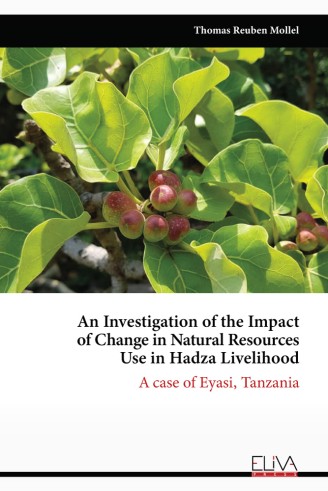
An Investigation of the Impact of Change in Natural Resources Use in Hadza Livelihood
$ 54.5
Description
This study intended to investigate the impact of change in natural resources use in Hadza livelihood for the period 1980 to 2014. The study involved Domanga, Mongo wa Mono and Quang’dend villages in Mbulu and Karatu Districts, respectively. Participatory approaches were used to obtain data for this research. Household interviews, wealth ranking, transect walk and observation were used to obtain data. The data collected were analyzed using SPSS and Excel programmes. Findings showed that the natural habitats of the Hadza were undergoing fast changes now than at any other time in history which brings both negative and positive changes to the Hadza communities. This was mainly evidenced by increase of farms and grazing in traditional hunter-gatherer areas. In Domanga the area settled and cultivated comprised 10% of all land and that in Quang’dend was 7%. This indicated a great decline in natural fruits, roots, tubers, berries and wild animals which are the major sources of food for the Hadza. Many water sources had also dried out due to increase in use for irrigation and for domestic use in the growing human settlements. There was a noticeable change in the livelihood of the Hadza in Mbulu District where many have started to diversify their livelihood by doing some farming and keeping livestock such as poultry, and engaging in ecotourism. In Karatu District the Hadza were forced to change their livelihood due to marginalization by other communities which deprived them of their natural food sources and water.



